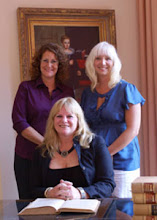TIPS FOR TESTIFYING IN COURT
The most important recommendation for someone about to
testify in court is to be truthful.
Generally, the attorney representing the opposing side is going to ask
you the same question in different ways, possibly several times. It is easy to remember the truth.
It is important to verbalize your answer clearly as most
court sessions are recorded and a court reporter may also be in the courtroom
with you taking down your testimony. It
is important not to mumble when testifying.
For example, say “yes” versus “yeh” or “unhuh” as the latter are not
clear verbal responses. The nodding of a
head cannot be heard. If you are
answering a question that requires you to point to a part of your body, be sure
to verbalize the part of the body you are pointing to. For example, if you point to your elbow also
state I am pointing to my elbow.
Be sure to let the examiner finish his/her entire question
to you before you start to answer.
Sometimes people will anticipate what the question will be and start to
answer it when that was not the question that was going to be asked and you end
up giving the wrong answer to the examiner’s question as a result.
Be sure to answer the question on point and do not bring in
unrelated issues in your answer. If you
do not answer your questions on point, then the hearing will drag out and you
potentially open doors to other questions you may not be prepared to address.
If you do not know the answer to question, just say so. There is nothing wrong with answering a
question this way if you honestly do not know the answer.
If part way through your testimony you realize you have
answered a previously asked question incorrectly and you now recall the correct
answer, advise the examiner that you need to change an answer because you
inadvertently or accidentally answered it wrong.
Never interrupt the examiner or speak over the
examiner. If you have a court reporter
present, he or she cannot accurately record multiple people talking at once. If the session is being taped, it is unlikely
the testimony will come through clear and be understood. Therefore, the end result may be critical testimony
not coming out in the written version of the taped session.
Always maintain eye contact with the examiner when you are
testifying. Also if possible, be sure to
glance at the judge regularly. Part of
the Judge’s job is to determine your veracity.
Veracity is defined as your ability to answer questions truthfully.
Only talk when you are addressed or asked a question by the
examiner. The examiner may be your
attorney or the opposing side’s attorney, or the judge. Otherwise, your attorney will do the majority
of the speaking at your hearing/trial.
You are not allowed to ask the examiner questions or make
generalized statements to the court. If
you have retained an attorney, it is your attorney’s job to ensure the court
hears everything important in your case within the confines of the applicable
rules that govern procedure.
Do not make faces while you are testifying or when your
spouse or a witness for your spouse is testifying. Do not laugh out loud or make any kind of
comments when someone else is testifying even if you strongly disagree with
what the person is stating in response to a question. It makes you look bad to everyone in the
courtroom, most importantly the judge.
In a courtroom, the judge is the highest authority. Be respectful to the judge by paying
attention to the judge, sitting quietly while the judge or someone else is
speaking or testifying. Also, do not
unnecessarily shuffle papers while someone else is speaking or testifying as
unnecessary noise may disturb the judge or the person speaking resulting in them
having to start over and this may unnecessarily drag out the hearing. Be polite and pleasant while you are in the
courtroom.
Finally, make sure you have a glass of water close by to where
you are testifying. Most people are
nervous when they testify and their mouth becomes dry. Having water will resolve the dry mouth
syndrome and can sometimes be used effectively to give you more time to answer
the question. All courtrooms have water
available to those who want it. It is also
very important to keep breathing. It
will help to relax you if you maintain steady breathing.


0 Comments:
Post a Comment
Subscribe to Post Comments [Atom]
<< Home